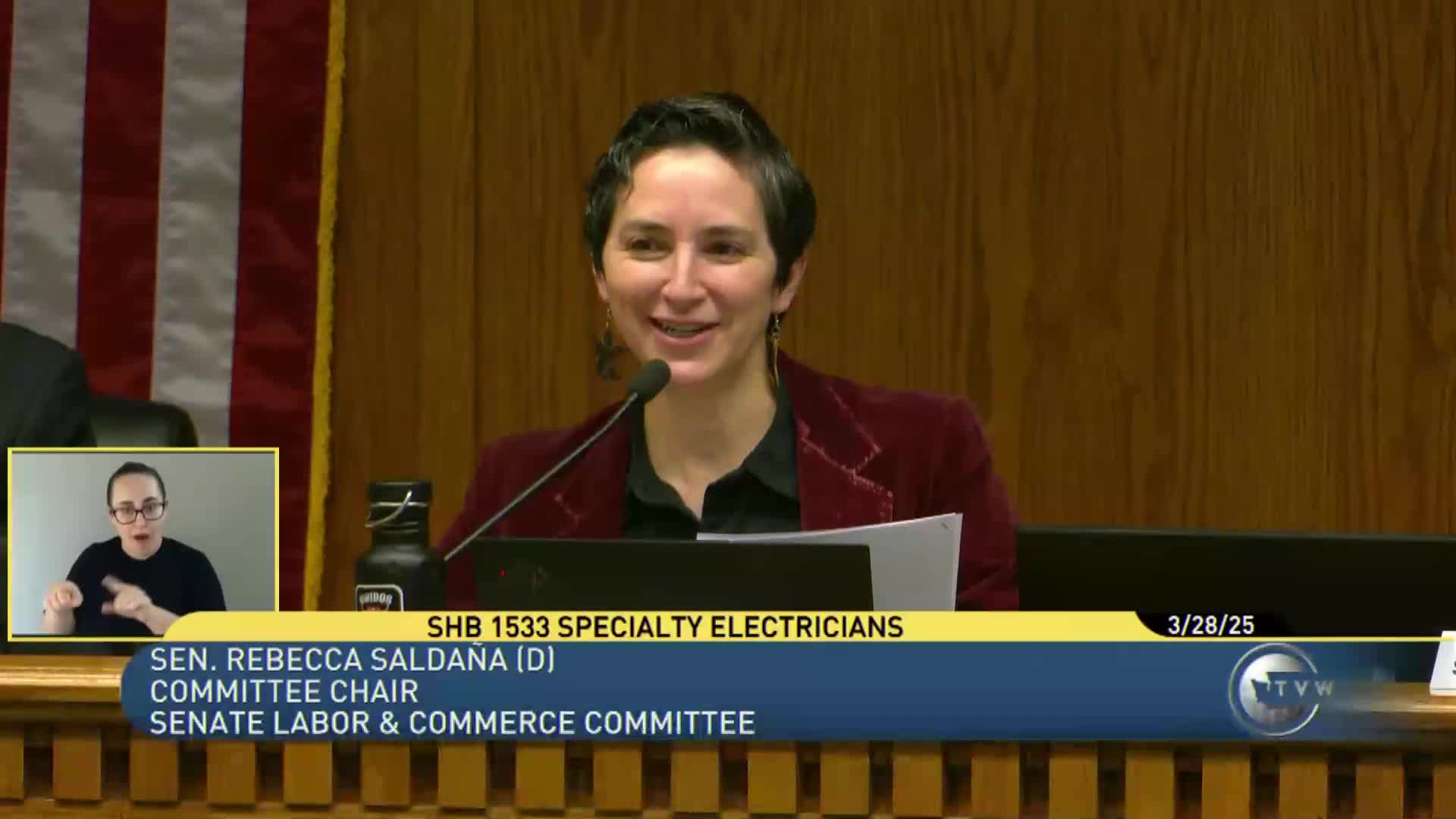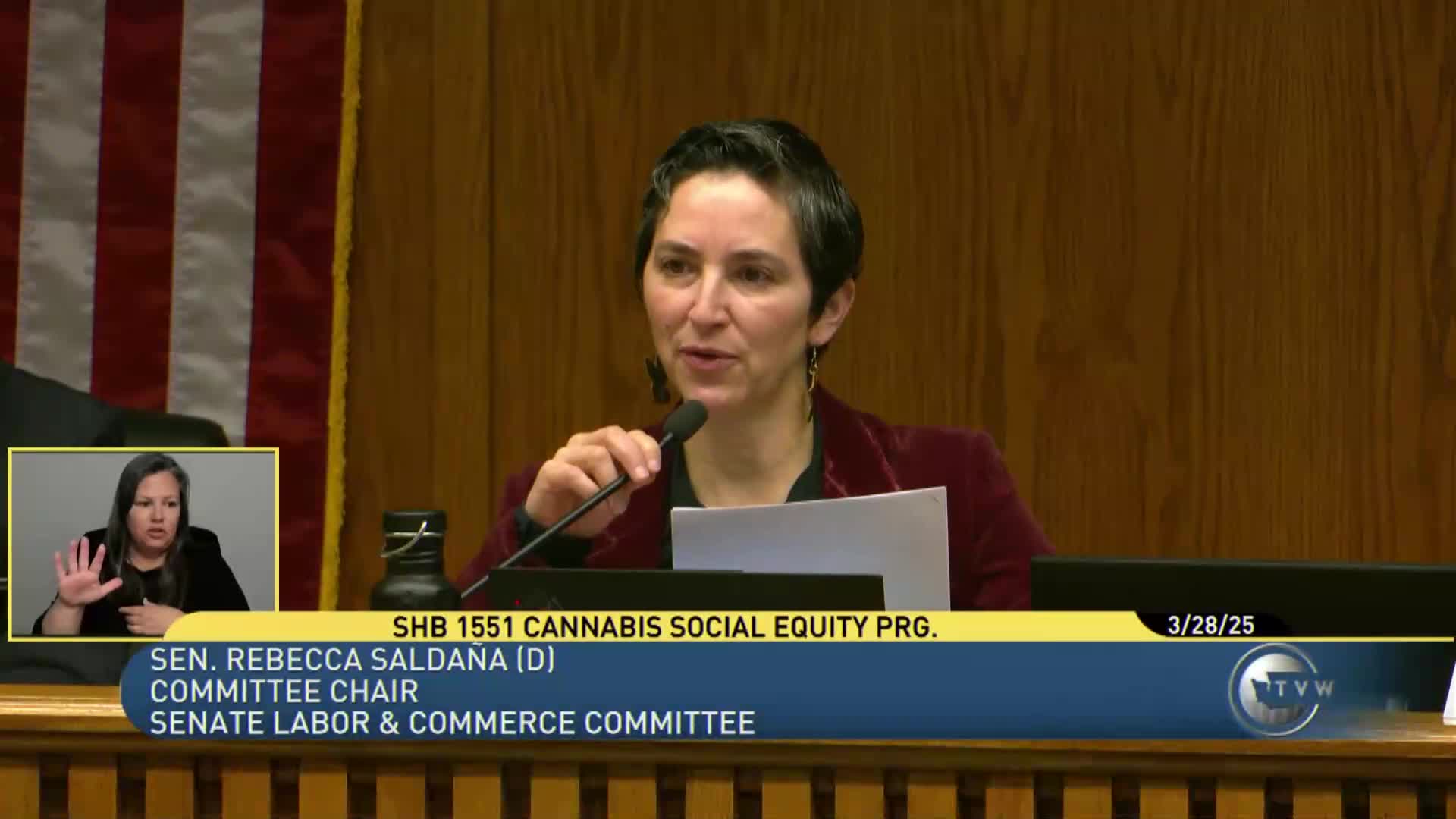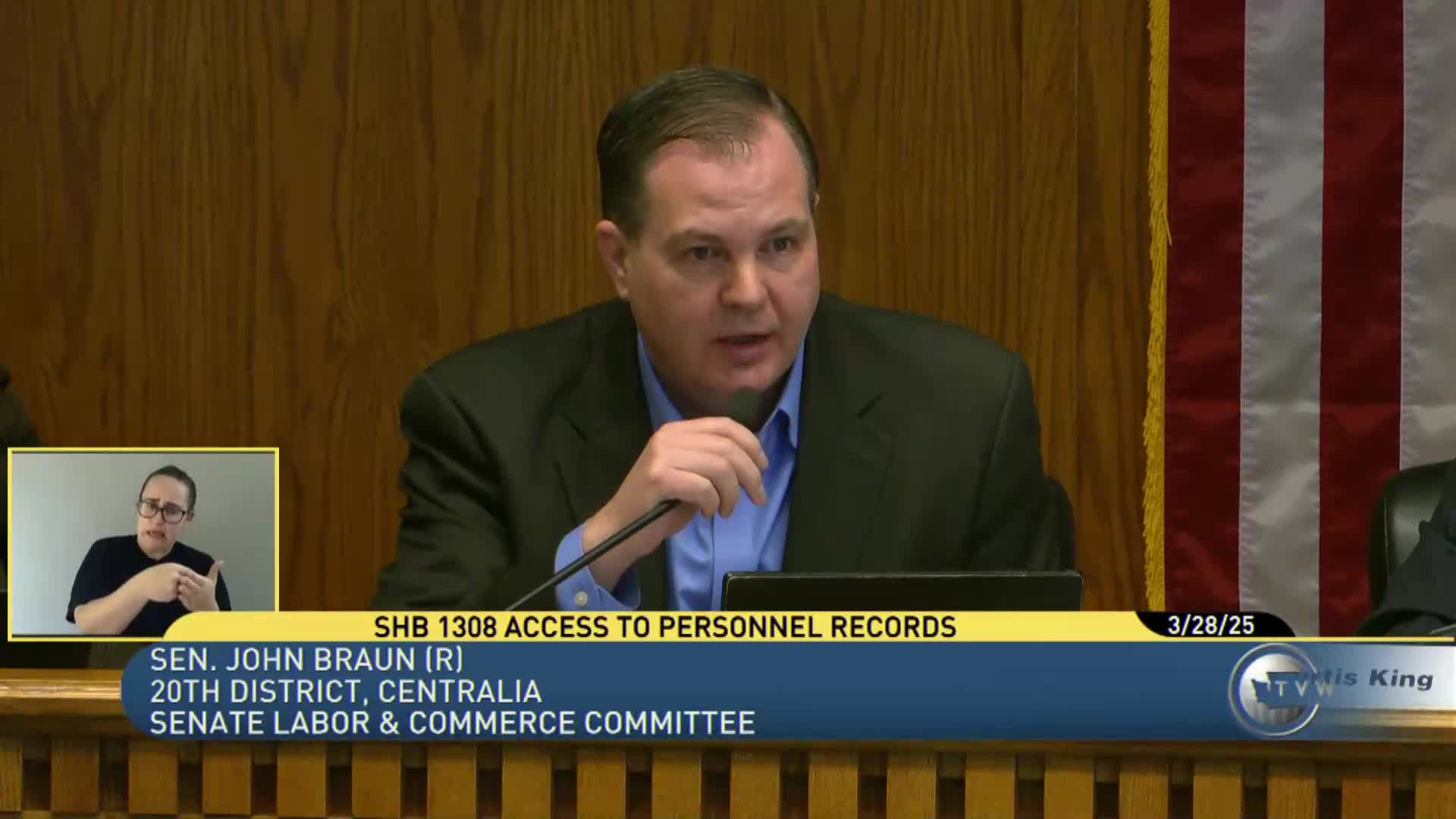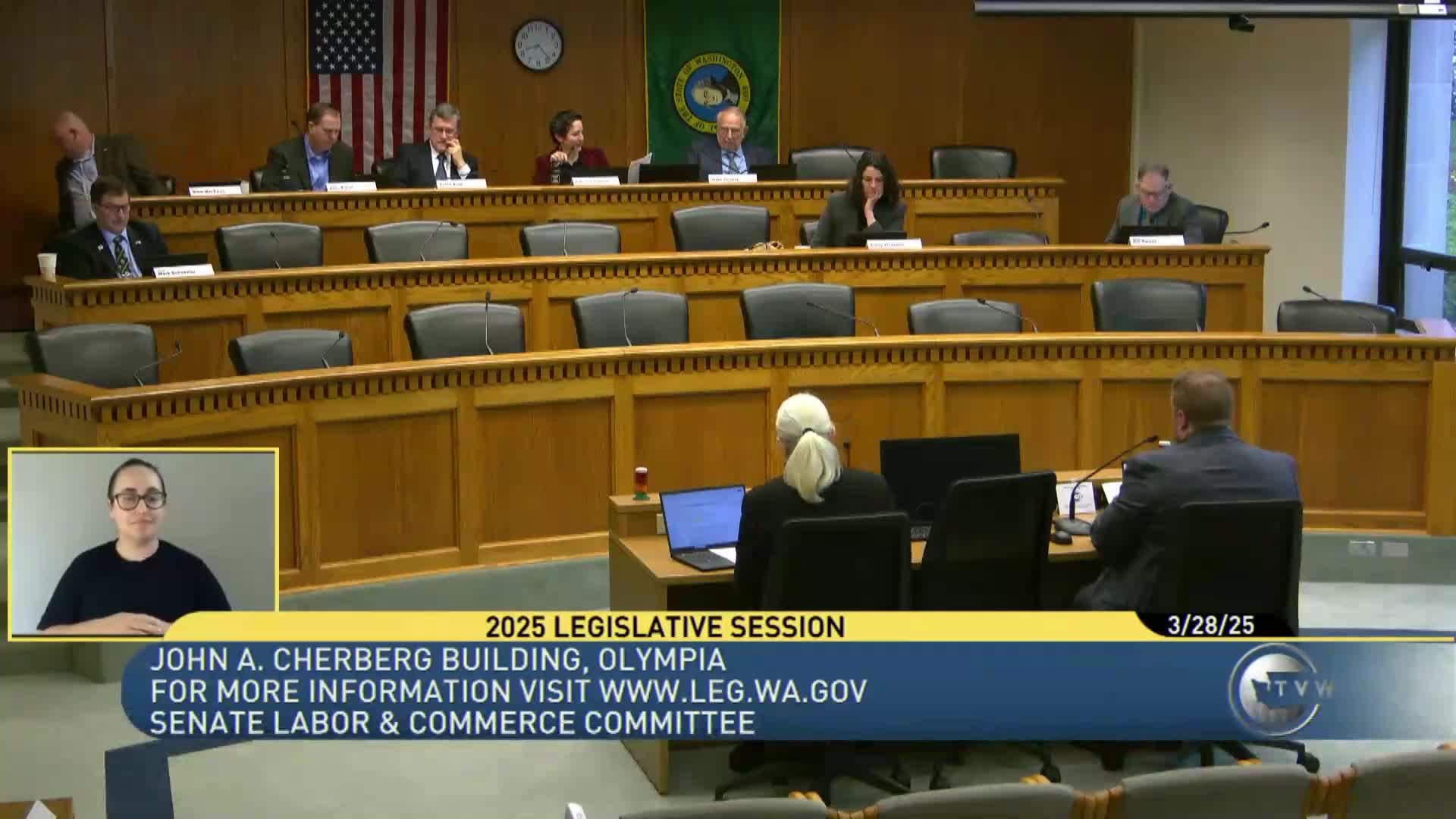Article not found
This article is no longer available. But don't worry—we've gathered other articles that discuss the same topic.

Bill would let specialty electricians keep working while enrolled in journey‑level apprenticeship

Bill would extend Washington's cannabis social‑equity program and require an evaluation

Bill would require bargaining when AI changes public employees’ pay or evaluations

